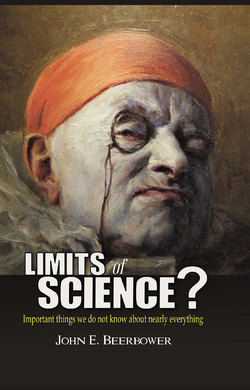Читать книгу Limits of Science? - John E. Beerbower - Страница 52
На сайте Литреса книга снята с продажи.
Economics and Other Social Sciences
ОглавлениеI became interested in the matters discussed herein during my university study of economics. I encountered and investigated a variety of methodological issues concerning the construction and testing of theories, the use of mathematics (and statistics) and the relevance of empirical evidence. Much of the discussion that interested me, and that was clearly secondary to the mainstream work of economists, addressed the question of whether economics is a “science.” I discovered that in the mid-twentieth century, in the midst of controversy over certain aspects of neo-classical price theory, some leading economists had become engaged in a heated debate over methodology. The heart of the debate—what are we trying to accomplish with our theories and how do we judge or assess our degree of success—has application in a wide range of intellectual and policy activities.
Subsequently, I became intrigued by the obvious parallels (or overlaps) between this brief debate among economists and the substantial body of learning that existed in the philosophy of science. Clearly, the questions that the economists considered were relevant to, and similar to, experiences in certain branches of the natural sciences, particularly biology and physics. Of course, had I been a student of physics first and come to economics later, I might be expressing surprise that the methodological issues of physics have parallels in the field of economics; however, it seems to me that, independent of my experiences, there are potential benefits for the lay reader in confronting the methodological issues in the context of economics rather than biology or physics, because the concepts and subjects of economics generally feel more approachable for the non-scientist.
In this day and age, it will seem strange to many people for me even to include a discussion of economics in a book on the sciences. The last few years have dramatically altered the public perception of the profession. And, if the status of a discipline as a science is to be determined by the ability of the discipline to make concrete and accurate projections about the consequences of various actions, then economics in the early twenty-first century should strive to keep a low profile.
